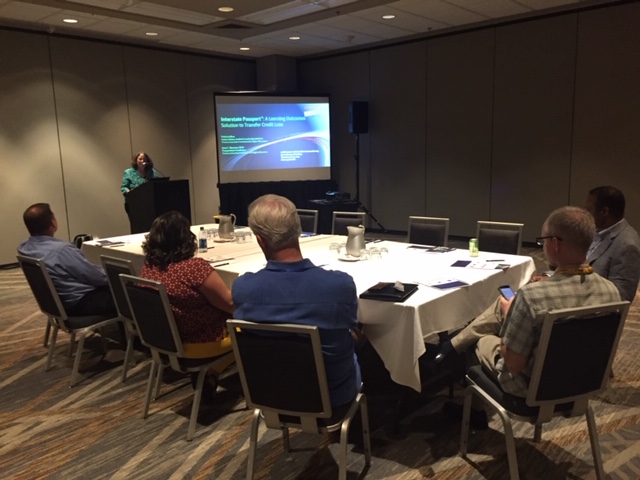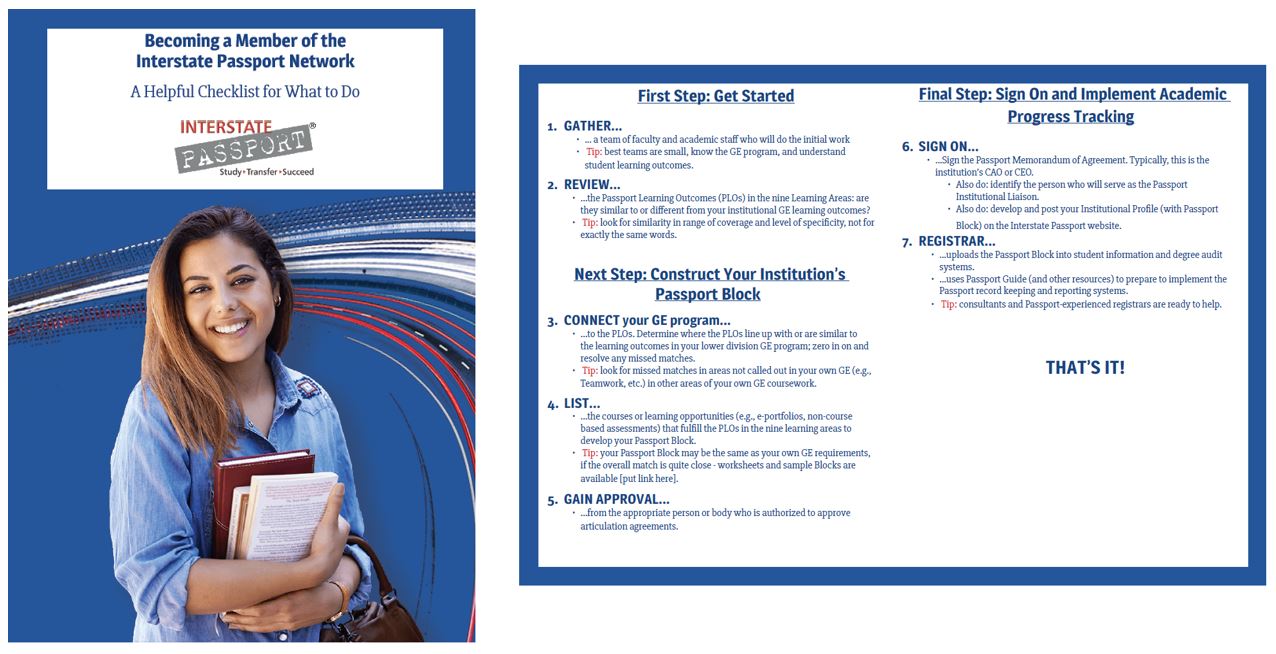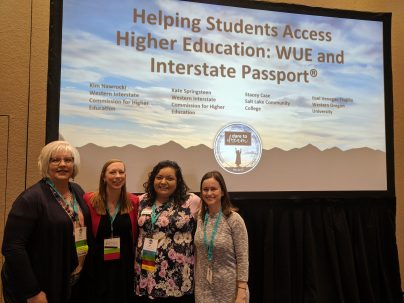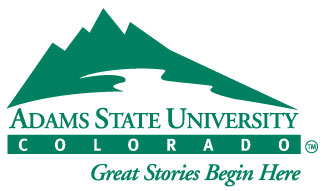By Mike Hillman, co-chair of the Passport Review Board
Mike Hillman, co-chair of the Passport Review Board, recently interviewed Richard A. Detweiler, the founder of HigherEdImpact, an international effort working to better educate people for lives of consequence, wisdom and accomplishment. Detweiler serves as a foundation fellow at Oxford University’s Harris Manchester College, and he is also the founder of the Global Liberal Arts Alliance, a union of 30 institutions committed to strengthening education in the tradition of liberal arts. He is a social psychologist specializing in intercultural relations and holds master’s and doctorate degrees from Princeton University.
The results
of Dr. Detweiler’s research on the link between the higher education experience
and life outcomes of 1,000 college students is expected to be published in book
form in 2020. His data indicate that a strong liberal arts education prepares
graduates for fulfilling lives and financial success. Although the study targeted
the impact of a liberal arts college experience, his comments below suggest a
strong link between lower-division general education practices such as those
used to achieve Passport Learning Outcomes and later personal and financial
success in life.
Interstate Passport: What led to your interest in the
benefits of a liberal arts education?
Detweiler:
My interest was two-fold. 1) My entire professional life I have been in liberal
arts institutions and I have been a strong believer in this approach to higher
education and, 2) in recent years the critique of liberal arts education has
become more strident and liberal arts education has been rolled back at so many
institutions. The defense of liberal arts was always weak and unconvincing.
That is, the rhetoric for a believer is very strong and very impressive and
very convincing, but for those who are not already believers, the defense of the
liberal arts either didn’t make sense or was unpersuasive. That led me to ask
myself the question: Are there ways to explore the meaning and intent of the
liberal arts that would give new or different insight or perhaps more
persuasive information as to its value and importance? If one approached the
question objectively rather than defensively, are there benefits that could be
demonstrated? That was the beginning of my research effort.
Interstate Passport: Your research seems to be very
timely with the recent Presidential Executive Order addressing education
outcomes and now a new Bill & Melinda Gates Foundation effort to examine
postsecondary value (see links below). Do you think your research can inform
those discussions?
Detweiler:
I would like to believe it will. I don’t believe any one research project will
ever convincingly answer all of the questions or even the fundamental
questions, but what I wanted to do with this research was move beyond the
questions of what students are like when they are in college or what are
students like when they get their first job to look at longer term impact.
There is really little research on long-term impact other than opinion surveys
regarding what students think or how they feel about their liberal arts
education. My hope is that as this new research becomes known it will influence
the nature of the questions that are asked and the kinds of outcomes that
people are seeking to identify for higher education. Most of the outcomes
assessed for elementary education, such as mathematics or reading proficiency,
can be assessed directly. Higher education is in a different category: you are trying to educate people with
outcomes that will result in them living their lives in personally and socially
beneficial ways, and these outcomes are less easy to assess.
Interstate Passport:
Your research really didn’t ask people directly about their liberal arts
college so much as it asked them about their interactions with faculty members
or the number of humanities courses taken. In that light, how does your research
on liberal arts colleges relate to a liberal arts education generally?
Detweiler:
How to approach the question of impact was a very interesting issue I explored.
The dilemma we face in liberal arts education is that there are almost as many
definitions of what liberal arts means as there are people to define it. I ran
many workshops with the participation of faculty, college presidents, academic
deans, etc. One of the exercises was to develop a description of liberal arts
education. Every one of those descriptions was interesting and compelling and,
to me as a liberal arts educator, each felt right. But they seldom fully agreed
– there were dozens and dozens of different statements, just as there are
hundreds of books on the liberal arts, thousands of articles on the liberal
arts, and tens of thousands of speeches on the liberal arts. So instead of
beginning the research by arbitrarily accepting a single contemporary
definition, this extreme diversity of ideas caused me to go back systematically
through the millennia-long history of the liberal arts, focusing not only on
the philosophy and content of study but also on the educational practices used
and the purposes being fulfilled. This analysis generated several dozen
consistent aspects of study associated with the liberal arts. These aspects
weren’t intended to be an authoritative definition of the liberal arts or
description of what a liberal arts college is or must be, but rather a
description of educational principles and practices most consistently
characterizing liberal arts study. While presumably these principles and
practices would be very prevalent at liberal arts colleges, some of them could
also describe liberal arts experiences students might have at a major
university or state college. So rather than beginning with a defense of the
liberal arts as a single concept, I began with a question: What is it about a
liberal arts education that makes a difference? What aspects of this approach
to a higher education are valuable? Is
it aspects of the content of study, such as the number of humanities courses
taken, or completing more than half of your coursework outside of your major or
being required to write papers in most classes? Or is it aspects of the
educational context – how the education is delivered – such as interacting with
others with different life experiences, or time with faculty outside of class,
or the use of pedagogy? Rather than starting with an a priori definition of what the liberal arts is we asked people how
often they experienced various liberal arts-associated practices as undergraduates.
Then, as a separate set of questions, we asked people about liberal
arts-associated life outcomes: leadership, altruism, continued learning,
cultural involvement, life satisfaction, and personal success. We could then
look empirically at relationships between their undergraduate experience and
how they live their life and identify the attributes of the college experience
that actually appear to make a statistically meaningful difference. The outcome
focus was on the long term: what are people like as adults 10, 20 or 40 years
after graduation? It turns out that the liberal arts educational context has a
consistently significant relationship to virtually all of the aspects of adult
behavior we investigated, whereas the specific content of study was less
consistently associated with adult behavior. Among the several dozen key
findings are these examples: while specialized study is associated with success
in first job, over the longer term this advantage disappears and more
successful people have taken more than half their courses outside their major
and have learned a broader range of perspectives; altruistic adults are more
likely to have had college faculty who knew the student’s first name and who
spent more time with students outside of class; and those who report living a
more fulfilled life took more humanities courses and also took more classes in
which there was not a single right answer to questions posed.
Interstate Passport: Have you come to view liberal
arts or general education as a desirable end in itself, outside of, or in
addition to, an academic major?
Detweiler:
What my research has told me is actually a stronger case than what I would have
made before the project. Liberal arts practices – breadth of content, the
development of intellectual skills, development of larger perspectives and
those kind of things – invariably have a much greater and more valuable impact
on people’s lives over the longer term; living fulfilled, involved, and
successful lives does not depend on the major content of one’s studies but on
liberal arts learning. There are short-term advantages to certain kinds of
majors such as a business or engineering; otherwise, differences in academic
majors seem to make little short-term difference and, as one’s life goes on,
differences related to the specialization of academic major disappear in
importance. Education occurring
in the context of an authentic learning community, the diversity of subjects
studied, the development of larger perspectives and other liberal arts-related
practices are associated with long-term success, personal fulfillment,
intellectual engagement, cultural involvement and other desirable outcomes. I
now view many kinds of liberal arts practices as, in fact, much more important
than the major per se. I am not arguing against having majors or against
specific courses but I am arguing that the major really is not the driver of
life’s outcomes; it’s other kinds of liberal arts experiences.
When I started this research I had financial support from
foundations so I knew that whatever I found – whether liberal arts principles
were supported or not – I wasn’t going to be able to sit on it or hide it. I
thought: What is going to happen if I don’t find a positive impact for liberal
arts educational approaches? For me personally that would have been very sad
because I spent decades working on behalf of the liberal arts and it is
certainly an approach to education that many people thought had value. If
positive effects were not found it would have felt like a tragedy on many
levels. Happily that did not turn out to be the case. It is actually a much
more positive and stronger case than I would have dreamed.
Interstate Passport: How does the AAC&U LEAP
program align with your research on the benefits of a liberal arts education?
Does LEAP’s view of liberal arts align with the view of liberal arts in your
study?
Detweiler:
I would say “alignment” is the right word. Are they the same? No, but they are
certainly aligned. Issues like Essential learning Outcomes identified by LEAP
overlap with what I identified, but I was not trying to create a discrete list
as in LEAP. Certainly there is overlap in ”high impact practices” and what I
ended up calling “effective pedagogy.” I used the “effective pedagogy” label
because many of the ideas that LEAP includes did not exist if a person
graduated 20 or 40 years ago – yet many faculty did make use of impactful
teaching and learning practices, including many of those listed by LEAP. I
asked things like, “How often did most of your courses require you to write
papers?” That is clearly an overlap. Internships per se were not found much 40
years ago so I did not ask about them. I did not ask about “First-Year
Experiences” because that concept also did not exist then, though I did ask
about having small classes and seminars with discussion in the first two years.
So, yes, overlap certainly with the questions I asked but not quite identical.
One of my fundamental views is that the liberal arts is not
prescriptive – it has evolved in important ways – and LEAP feels somewhat
prescriptive because it identifies a list of characteristics that comprise a
LEAP-defined liberal arts education. Because the research shows that different
parts of the liberal arts educational experience affect different aspects of
life’s outcomes, I don’t believe one should start with a list of educational
attributes. Instead, in my view every institution needs to start with a
question: What kind of life outcomes are you trying to create? Are you trying
to create people who are culturally engaged, who exercise leadership or who are
altruistic to society or who are leading fulfilled lives or who are personally
successful? Start with that question and then go from the answer to identifying
the kinds of liberal arts educational practices that are associated with those
outcomes since different types of liberal arts-related educational experience
are related to different life outcomes. In that sense, there may be a different
list of educational experiences for one liberal arts institution than for
another and that is fine and good as long as the starting point is to first
identify the purpose and then select the educational principles and practices
that will fulfill the institution’s purpose.
Interstate Passport: If LEAP were to be improved to
align better with your research, what kinds of improvements would you suggest
we look at?
Detweiler:
What I would say goes back to my previous comments. For me, LEAP, as it is
presented and to some degree implemented, involves satisfying a specific list
of identified practices. My research indicates there is not a single list of
learning outcomes that are appropriate to and for every liberal arts
institution. This is not an objection to the content of LEAP, but for me, it
feels too “check off the box,” prescriptive, and short-term focused. It has too
much of that character relative to what I think liberal arts institutions
really ought to be doing.
Interstate Passport:
Is there any reason that a liberal arts experience should not be
transferrable between institutions?
Detweiler:
No, I would say quite the contrary. The challenge is in the definition of what
liberal arts is and what general education includes. Institutions need to be
clear on what purpose they are trying to fulfill and then implement a liberal
arts program design, not just courses but out-of-class activities and those
kinds of things that contribute to those outcomes. In that sense, there could
be differences among institutions in course content or design because there
could be differences between institutions in terms of what purpose they are
trying to fulfill. For example, if the highest priority is to create lifetime
learners there could be differences in general education experiences as
contrasted with an institution that wants to focus on helping people to live
fulfilled lives. Those differences may call for different kinds of educational
experiences. I don’t think that in any way decreases the reasonableness or
viability or likely success of being able to transfer general education
courses, but I do think it requires thinking carefully and clearly to assure
that a student, particularly if they are consciously planning to go to one
institution for two years and then to continue at another institution, takes
courses that are aligned inter-institutionally.
Interstate Passport: Recent best practices in general
education suggest that general education concepts should extend into upper-division
level (junior and senior) coursework. Interstate Passport specifically
addresses the lower-division (freshman and sophomore) general education
requirements. Do you think this upper and lower division distinction provides
the opportunity for liberal arts experiences to be transferrable at the lower-division
level and institutionally specific at the upper-division level?
Detweiler:
I think that is an elegant idea. From my research, studying broadly outside the
major and engaging in issues of significance to humanity in most courses, for
example, have significant long-term life impact. But the coursework or other
experiences associated with these could easily be separated into inter-institutionally
similar courses at the lower level and institutionally tailored courses at the
upper level.
Interstate Passport: Do you have any advice for the
Interstate Passport initiative now that you have had a chance to study it?
Detweiler:
I am fascinated [by the Interstate Passport concept] and feel guilty that I had
not known anything about it previously. I have to say it is so logical. I
understand why faculty in a psychology department or a physics department at
every institution may have different ideas about what content should be included
in major requirements. But there should just not be that much difficulty for
students at the general education level. It seems so compelling to me, so I
commend you for what you are doing.
Links to Presidential Executive Order and Bill & Melinda Gates Foundation study on the value of postsecondary credentials:
In addition to requiring the Secretary of Education to report on state and institutional efforts to facilitate successful transfer of credits and degree completion, the new Executive Order [https://www.insidehighered.com/sites/default/server_files/media/White%20House%20Executive%20Order.pdf] requires the annual College Scorecard to report on estimated median earnings and student loan debt and default rates for former students receiving federal financial aid.
The
Bill & Melinda Gates Foundation is supporting a new 30-member panel [https://www.insidehighered.com/news/2019/05/16/gates-and-state-college-group-co-chair-postsecondary-value-commission] to study the value of
postsecondary credentials. The panel is co-chaired by Gates CEO Sue
Desmond-Hellmann and AASCU president Marcia Garcia.








